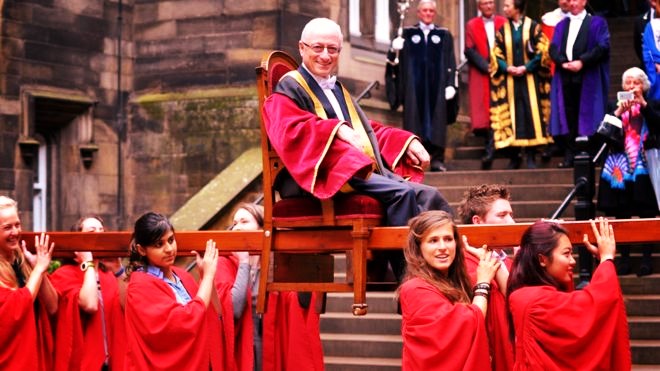The Higher Education Governance Bill has been passed in Scottish Parliament by a margin of 75 votes. The bill has previously been accused of “significantly impeding” University of Edinburgh’s administration by Principal Sir Timothy O’Shea. On 8 March in the Scottish Parliament passed the bill by 92 to 17 votes.
The bill aims to make basic changes to academic boards and governing bodies of Scottish universities by setting guidelines for size, composition, nomination procedures, and election procedures. It also further defines critical ideas of the bill, including ‘higher learning institution’, ‘governing body’, and ‘academic board’ to avoid any general confusion.
When referring to the changes to governing bodies of higher learning institutions, the bill requires that members be elected in a more democratic way that will be more inclusive of staff and students.
Specifically, the staff, trade unions, students’ associations, and graduates’ associations will now be required to elect two members each to the board of their institution.
By bringing in more diverse forms of representation, the bill hopes to broaden the range of opinions within these governing bodies, ultimately improving university standards.
Despite the bill’s democratic rhetoric, certain controversies have surrounded the bill since it was introduced last June.
One of the main issues brought up has been the change to the election process of governing bodies.
Despite appearing more democratic, many claim that requiring student and staff to elect members will create conflicts within the board.
University of Edinburgh Principal, Sir Timothy O’Shea, has opposed this bill since its conception. “The amendments are inconsistent, incoherent and potentially very damaging for one of Scotland’s major universities.
“There has been no consultation or discussion with us, or the wider sector on the implications, which require careful consultation and scrutiny otherwise there is a real risk of perverse and possibly unintended consequences”, he told the BBC.
Rachel Lonie, a first year Politics and German student at the University of Edinburgh, agreed with this positive interpretation of the change, saying that “the best way to make decisions for a university is by including the people experiencing it. The perspective of students and staff allows for an inside perspective on issues that may have not been addressed adequately or at all”, she told The Student.
Another area of the bill that has been criticized is its definition of ‘higher learning institutions’, which specifically excludes campuses such as Open University. Many believe that any university in Scotland should be influenced by this legislation, not just those institutions deemed worthy. Furthermore, this definition has been denounced for its failure to take the diversity of universities into consideration.
Hailey Ferguson, an International Relations student at the University of Texas Austin, expressed her concern over this lack attention to individuality, specifically discussing how she thinks this ‘one size fits all’ approach has no place in the educational system.
“Universities are being grouped together under new legislation and becoming trapped, unable to function within government limitations. If a certain system works well for an institution, imposing a new set of rules is not always in the university’s best interest,” she told The Student.
Image credit: BBC/Jane Barlow

